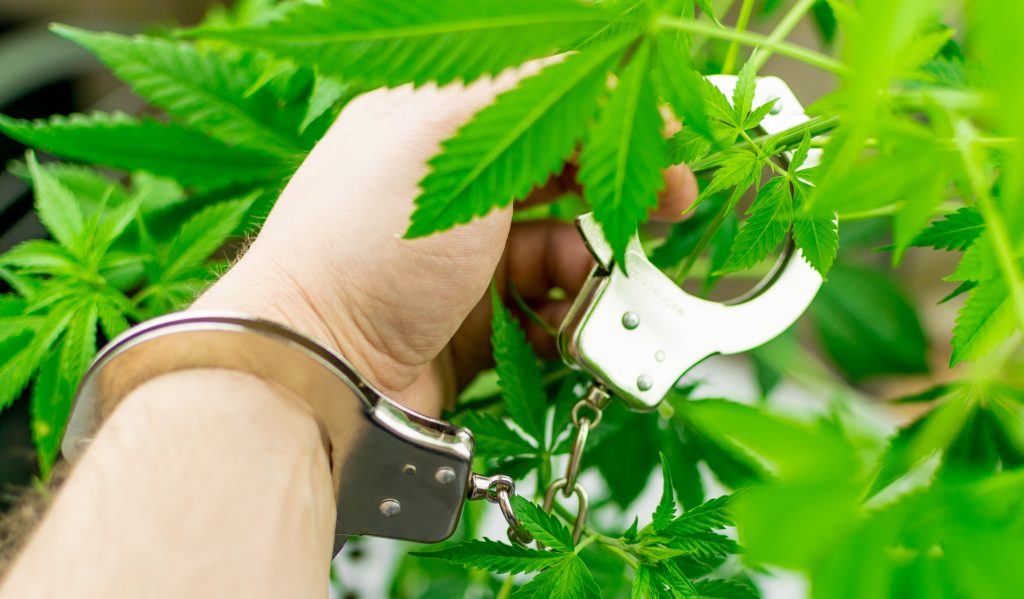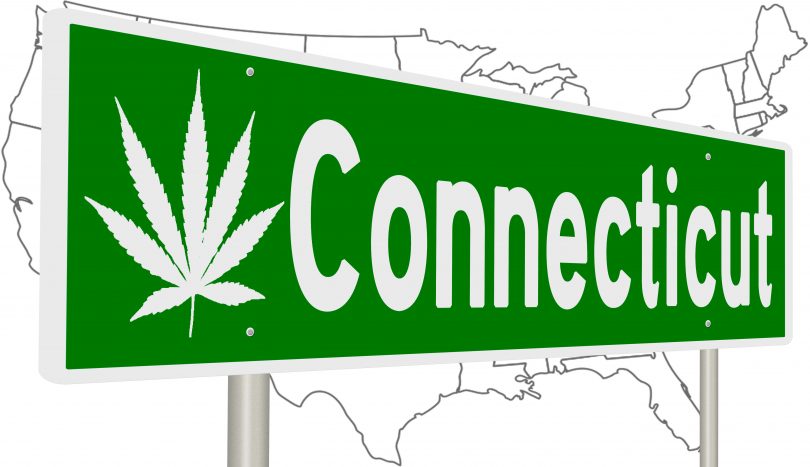It looks like Connecticut is going to be the 18th US state to adopt a recreational cannabis legalization policy. After talks of vetos, and fighting over provisions, the bill is up for its final vote before being signed by the governor.
Another state falls as Connecticut gets ready to pass a recreational legalization bill! The whole country is going cannabis-crazy, and new markets mean more products and more options, which is great for you. Like delta-8 THC instead of delta-9 THC. All the same health and wellness benefits, but with slightly less high, no anxiety, and a clearer head. We love helping people find the products they need. If you’re a delta-9 user who wants to try something else, check out our array of Delta-8 THC deals and take advantage of the growing offering of cannabis products.
Connecticut and recreational cannabis legalization
On Tuesday, June 15th, the Connecticut senate passed legislation for the second time this week, for the recreational legalization of cannabis, and to establish an adult-use market. The original bill was passed on June 8th, during the regular congressional session, with a vote of 19-17, however it never made it to the House before adjournment by the General Assembly on June 9th. Before the second vote, revisions were made to the bill, which the governor decided were not appropriate. The revised version passed the Senate again Tuesday during a two-day special legislative session in a vote of 19-12, only to have the governor threaten a veto if it passed the House in the same form.
Recreational cannabis legalization efforts started about five years ago in Connecticut, but floundered over the years. This year, there was renewed vigor, and support by Governor Ned Lamont. The bill should have come up before the end of the legislative session, but as tends to happen in government, it stalled for months, before finally coming to light right before congressional sessions ended. Regardless, its there now, and it looks like Connecticut will be state # 18 following New York and New Mexico, which both legalized a couple months back.
What is the issue?
The issue making a mess of things has to do with a provision about equity, which was specifically designed to help those who had faced prosecution as a result of cannabis criminalization, to get something back. The idea being to allow this population the ability to more quickly obtain licensing to cultivate or produce cannabis products, and be a part of the legal market. Unfortunately, when the provision was added after the first Senate vote, lawmakers went a bit crazy, expanding that equity to other drug offenders, other criminal offenders, and even their families, which earned the ire of the governor, and rightly so.

The bill, says Lamont, would open the cultivation and production industry to many people who don’t deserve to get an expedited pass. The governor’s chief of staff, Paul Mounds, issued a statement with a promise of the governor’s veto if the bill passed the House with the current language.
According to Mounds, the legislation: “Simply put, does not meet the goals laid out during negotiations when it comes to equity and ensuring the wrongs of the past are righted. To the contrary, this proposal opens the floodgates for tens of thousands of previously ineligible applicants to enter the adult-use cannabis industry… This last-minute amendment creates equity in name only by allowing these individuals expedited opportunity to obtain access to the marketplace.”
While admittedly not all criminals should have this access, he specifically stated “just about anyone with a history of cannabis crimes” would have access. Don’t we want that? Isn’t that the point? I mean, traffickers wouldn’t ever have access, so he’s talking about personal possession and use cases, which theoretically would be expunged. Yet these people shouldn’t have access to cultivation and production licenses at an expedited rate? Does the governor not want people who have already paid a price for something that wouldn’t even come with criminal implications anymore, to have expedited access to the legal market they were once punished for being a part of?
Apparently not. This is what he stated: “If a rich suburban kid is selling pot outside of a high school and he gets busted all of the sudden he’s at the front of the line to get a license, that didn’t seem to make much sense to me. I really think it’s the community, not the person, that ought to be prioritized.” Weirdly, I think it’s the person who had to serve the sentence who should get the help, and it shouldn’t matter who they are. But that’s just my opinion.
Sen. Gary Winfield, who co-chairs the General Assembly’s Judiciary Committee, and who is a major sponsor of the bill, did show an understanding of going a bit too far with including so many groups:
“I think what we were doing was trying to address the concerns of some people who felt like people who had records, particularly on cannabis, in the criminal justice system, would be able to participate under the system… I think that the initial change we made definitely allowed this to go too far, and so we made an attempt to bring it back along the lines of some of the concerns of the governor … In doing that, clearly the governor feels as though we missed the mark.”

Second thoughts?
Only hours after threatening to veto a bill that passed the Senate twice, Governor Lamont changed his tone a bit. Considering his only issue is in who gets expedited licenses, and not in the actual legalization of cannabis (which he actually was a huge proponent of), its not that surprising that something worked out in the end.
Not 24 hours after asserting his desire to veto the bill if it passed the House in the same form passed by the Senate, Lamont stated he expected a final vote to go through this week. House Speaker Matt Ritter stated that most members of the democratic caucus were happy enough to change the language, given that the bill already passed the Senate once without the revised equity provision (which originally was based on location). This means that the ever-important part about helping those who have already faced criminal penalties for cannabis, wouldn’t be a part of it.
Said Lamont of the bill going to the House: “The Senate passed a really good marijuana bill a week ago, a bill that had been carefully negotiated over a period of time… There were a couple of curveballs that came in at the very last moment late last night, and I think you’re going to see the House go back and pass what was the originally agreed-upon bill, and I think we’re going to get something passed within a week.”
As it turns out, the House did pass the bill June 16th, but with the original equity allowance based on location, not the amended one. Rather than simply changing the language to not involve other criminal offenders, the provision to help those who had been previously convicted of cannabis crimes to get expedited licensing, was dropped. Along with that, a second provision was dropped, which would have made it so that anyone earning over a certain amount wouldn’t have eligibility for equity at all, regardless of other circumstances. This sends the bill back to the Senate for yet another vote, since the House and Senate have to pass the same version of the same bill. The bill passed in a vote of 76-62 after debates on the floor. The Senate is scheduled to go at it again on Thursday the 17th.
To give an idea of the craziness that exists in marijuana thought, Representative Tom O’Dea, made this statement: “Mark my words… people will die because of this bill, because of marijuana being sold in Connecticut.” He seems to misunderstand that there isn’t really a death count associated with cannabis. Perhaps he should worry more about the 1,359 reported overdose deaths in 2020 in Connecticut, and how 85% were related to fentanyl.
What are the provisions of the bill?
Assuming the bill does end up passing, and getting signed, it would legalize cannabis for those 21 and above, starting July 1st. The new law would allow individuals to have up to 1.5 ounces on their person, and up to five ounces in a home or vehicle that is secure.

Products will be required to have THC labeling, and home-growing, which originally was not going to be a part of it, will be allowed. If it passes, residents will be able to have up to three mature plants, and three immature plants, in their homes by 2023.
The retail market would not be up and running until around May of 2022, and possibly later than that. And the bill would actually ban any state lawmakers from entering into the market in any capacity until at least two years after leaving office.
Conclusion
Politics sure are messy, and the majority of the time, we regular citizens have no idea what goes on behind the scenes, or why. Connecticut will almost definitely be passing a recreational cannabis legalization bill on the 17th, but unfortunately, it won’t afford extra help to those who have already been damned by the system. On the other hand, this now makes 18 states. Can’t be upset about that!
Hello! Welcome to CBDtesters.co, your #1 location for the most interesting and relevant cannabis-related news globally. Check us out everyday to stay abreast of the ever-changing world of legal cannabis, and sign up for our newsletter, so you always know what’s going on.
Resources
Start Spreading the News: Recreational Cannabis is Legal in New York… and New Mexico
America Is Cannabis Friendly – It’s Official The Delta 8 Weekly Newsletter (All you need to know about Delta 8 thc), the Best Delta 8 THC Deals and the Best Delta-10 THC deals Conservative Cannabis: Legalization Gaining Republican Support
Psychedelic Legalization to Follow in the Footsteps of Cannabis Texas First State to Say ‘No’ to Delta-8 THC Criminalization
Alabama Set To Become the 37th State To Legalize Medical Cannabis
Mexican Cannabis Legalization: Why Hasn’t Legislation Passed?
Disclaimer: Hi, I’m a researcher and writer. I’m not a doctor, lawyer, or businessperson. All information in my articles is sourced and referenced, and all opinions stated are mine. I am not giving anyone advise, and though I am more than happy to discuss topics, should someone have a further question or concern, they should seek guidance from a relevant professional.







